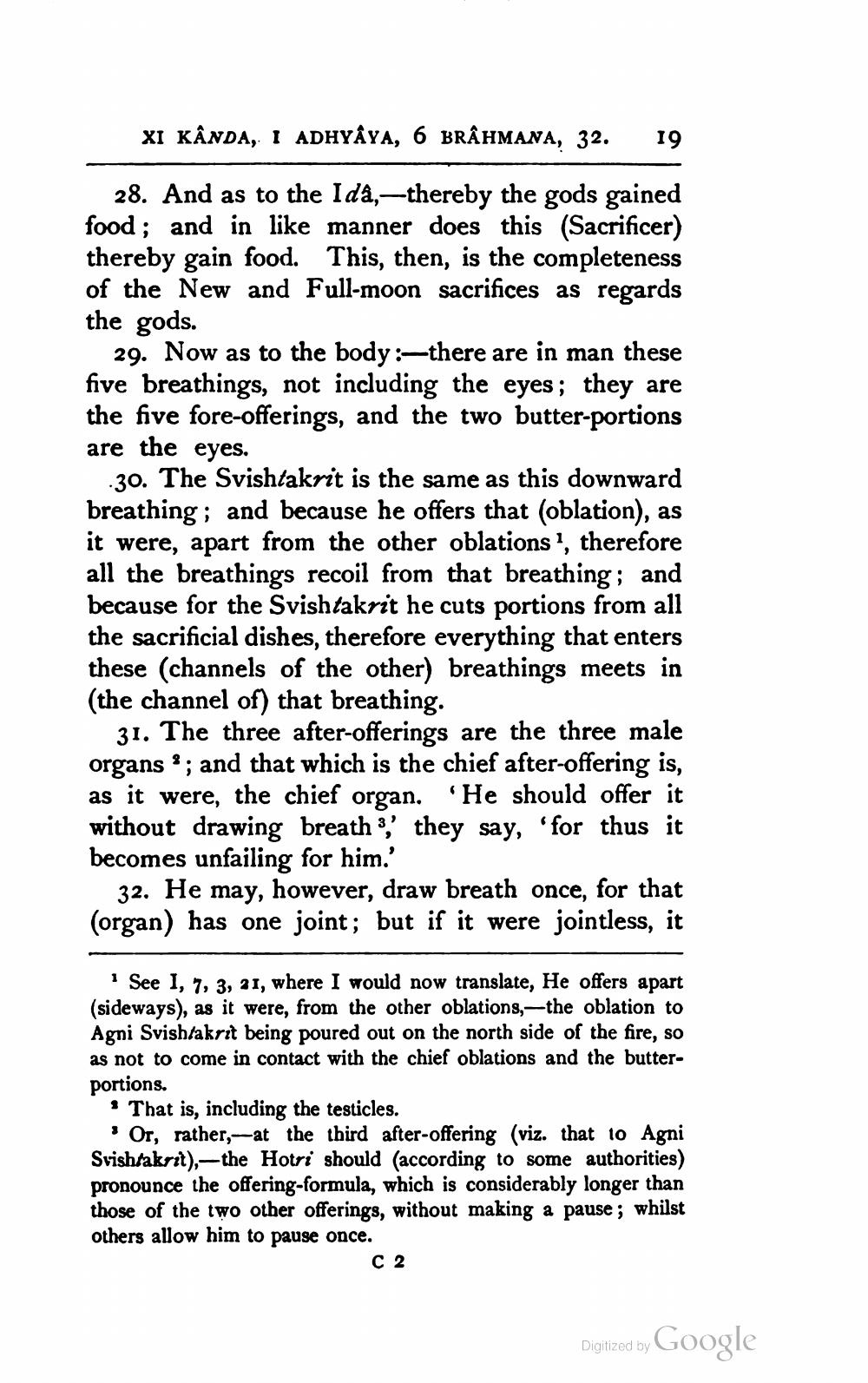________________
XI KÂNDA, I ADHYÂYA, 6 BRÂHMANA, 32.
19
28. And as to the Ida,—thereby the gods gained food ; and in like manner does this (Sacrificer) thereby gain food. This, then, is the completeness of the New and Full-moon sacrifices as regards the gods.
29. Now as to the body:-there are in man these five breathings, not including the eyes; they are the five fore-offerings, and the two butter-portions are the eyes.
30. The Svishtakrit is the same as this downward breathing; and because he offers that (oblation), as it were, apart from the other oblations', therefore all the breathings recoil from that breathing; and because for the Svishtakrit he cuts portions from all the sacrificial dishes, therefore everything that enters these (channels of the other) breathings meets in (the channel of) that breathing.
31. The three after-offerings are the three male organs ; and that which is the chief after-offering is, as it were, the chief organ. “He should offer it without drawing breath 3,' they say, 'for thus it becomes unfailing for him.'
32. He may, however, draw breath once, for that (organ) has one joint; but if it were jointless, it
See , 7, 3, 21, where I would now translate, He offers apart (sideways), as it were, from the other oblations,—the oblation to Agni Svishtakrit being poured out on the north side of the fire, so as not to come in contact with the chief oblations and the butterportions.
* That is, including the testicles.
'Or, rather,--at the third after-offering (viz. that 10 Agni Svishtakrit),—the Hotri should (according to some authorities) pronounce the offering-formula, which is considerably longer than those of the two other offerings, without making a pause; whilst others allow him to pause once.
C2
Digitized by Google




